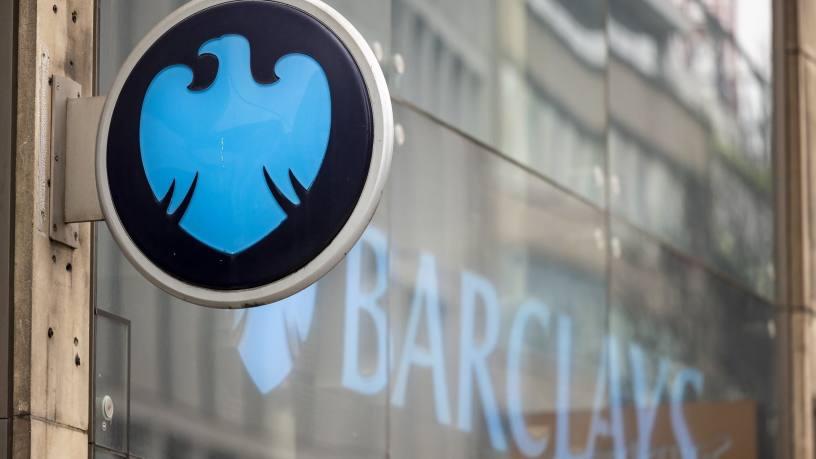The nonprofit ShareAction and more than 20 investors with $1.24 trillion in assets under management will challenge Barclays at its annual meeting on May 9th to raise money for all companies focused solely on fossil fuel extraction. Its hydraulic fracturing policy is global, with the promise of “explicit limits” on.
The global policy will also include North America, where most of Barclays' fracking customers are based, according to ShareAction, which compiled the letter published on the day of Barclays' shareholder meeting.
Investors who signed the letter include Nest Pensions, blockchain platform Cardano, the Church of England Pensions Board, Brunel Pension Partnership and asset manager Rathbones.
Last month, ShareAction highlighted a “loophole” in Barclays' energy policy, arguing that Barclays could continue to heavily finance fracking, particularly in the US, where fracking is not banned. The UK and EU have banned or restricted hydraulic fracturing.
In February this year, Barclays stopped direct financing of new oil and gas projects, focusing its funds and resources on growing low-carbon technology and energy customers working on the transition, with a goal of $1 trillion in sustainable transition finance. It was announced that there was. By 2030.
Kelly Shields, ShareAction's campaign manager, told The Banker that the nonprofit's involvement with Barclays has resulted in tougher regulation of oil sands finance, as the bank has campaigned on the issue for years. He said it became.
ShareAction said it plans to ask questions about banks' climate change initiatives at shareholder meetings of 17 banks in the coming weeks. “We ask direct, probing questions. [banks’] The board is discussing how it intends to end financial dependence on oil and gas expansion and redirect financial flows to sustainable technology development and green activities such as renewable power generation. said Mr. Shields.
This comes after investors asked similar questions of U.S. banks' boards of directors, demanding that banks disclose their clean energy and fossil fuel lending ratios.
Also at the May 9 shareholders' meeting in Glasgow, Barclays spoke out about the Palestine Solidarity Campaign, Fossil Free, which claims the bank is “funding arms companies that are complicit in Israeli genocide and genocide”. It faces protests from nonprofit groups including London, Christian Climate Action and Biofuel Watch. apartheid against the Palestinian people.”
In a statement, the non-profit group claimed that Barclays holds £2bn of shares in companies whose weapons, parts and military technology are used in Israel's violence against Palestinians.
“They have also provided over £6.1 billion in loans and underwriting to these weapons and military technology companies,” the statement claims.
Barclays did not respond to requests for comment about the nonprofit's claims about defense companies and questions about potential loopholes in energy policy. But in a statement on its website, the bank said questions about why it would invest in nine defense companies that supply Israel “suggest that we are doing the wrong thing.”
“We trade shares in listed companies at the direction or request of our clients, and as a result may end up owning shares. We do not invest on behalf of Barclays and is not a 'shareholder' or 'investor' with respect to these companies.”
“We are mindful of the UK and US governments' concerns about civilian deaths and targeting of aid workers and will continue to monitor developments closely,” the statement added.
A spokesperson for the Palestine Solidarity Campaign told The Banker that holding shares in military companies on behalf of clients “does not override Barclays' ethical and moral responsibilities or its international obligations”. Told.
On broader energy policy, Barclays said in a statement that ShareAction is aware of the lender's latest oil and gas policy developments.
ShareAction said in February that Barclays' latest energy policy includes “a decision to set up basic climate tests for oil and gas customers, alongside a commitment to suspend direct financing of new oil and gas projects. The bank's positive commitments include: The nonprofit also said that “the strategy could have gone further.”
Barclays added in a statement to The Banker that it “mobilized” $67.8 billion in sustainability and transition funding last year.
“We recognize the importance of meeting current energy demands while funding future expansion of clean energy systems to ensure energy is safe, affordable and reliable. I am aware of that,” he said. “The International Energy Agency's 2050 Net Zero Emissions Scenario recognizes that short lead-time reserves such as shale oil and gas will continue to be a significant part of near-term energy supply.”
This article has been amended since publication to include comments on Barclays' energy policy and its aim to achieve sustainable finance targets by 2030.


